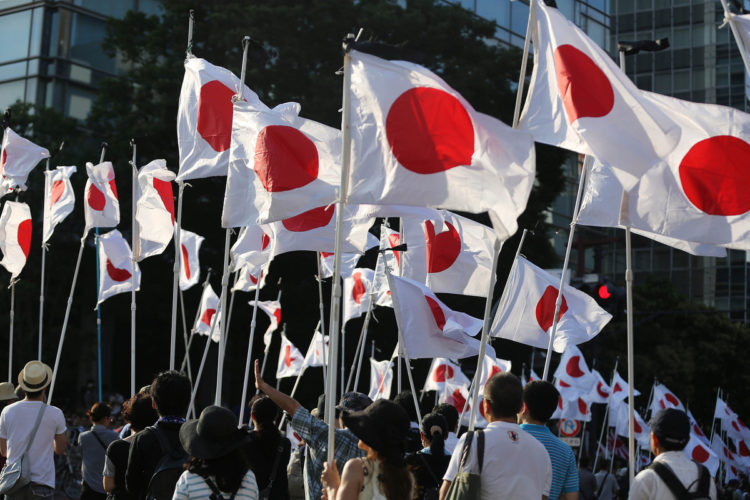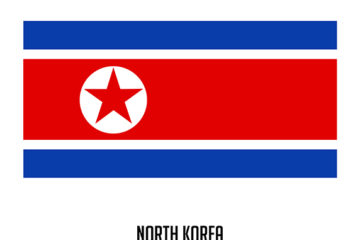Inside Japan’s Plan to Avoid Trump’s Wrath on Trade Disputes

(Bloomberg) —Japan had one main objective when Prime Minister Shinzo Abe visited the White House in February: Deal with U.S. Vice President Mike Pence on major economic disputes.
Ahead of the meeting, President Donald Trump had lashed out at Japan for keeping the yen weak and exacerbating the trade deficit with barriers for U.S.-made cars. For Abe, the criticism threatened to sour relations with an ally that is crucial for Japan’s defense against threats from North Korea and China.
“Japan wanted the deputies to take the lead in this dialogue, because even if they have a conflict over individual trade deals, we can always fix Japan-U.S. relations if the leaders keep good chemistry,” Akira Amari, a former economy minister and Japan’s top negotiator in the Trans-Pacific Partnership trade talks, said in an interview last month.
The plan worked: Pence arrives in Japan on April 18 for talks with Deputy Prime Minister Taro Aso as part of a new bilateral dialogue on everything from monetary policy to trade to infrastructure. The arrangement lets Abe focus on befriending Trump while giving Japan the best shot at avoiding a clash with the U.S. that could hurt Asia’s second-biggest economy.
With anemic demand at home, it’s crucial for Japan to head off any barriers to its exports, particularly to the U.S. — its biggest market. The yen has dropped about 23 percent since Abe came to power, and Japan’s $63 billion trade surplus with the U.S. makes it a target for Trump.
One of Abe’s main goals in the dialogue is to prevent Trump from commenting on the weaker yen, which has lifted the competitiveness of Japanese goods in international markets and helped the government’s reflation program. Japan also wants to revive some elements of the TPP that Trump abandoned, according to officials in Tokyo familiar with preparations for the dialogue, who asked not to be identified.
The U.S. told Japan that it considers the trade deficit to be a primary agenda item in the talks, the Nikkei newspaper reported on Wednesday, citing unidentified government officials. Aso also said in parliament Wednesday that drafting free trade rules was a key goal of the dialogue.
China has similarly sought to avoid Trump’s wrath on Twitter. President Xi Jinping’s summit with Trump last week produced a new negotiation framework led by the two leaders that also brings together cabinet members for talks on issues including security, the economy and cultural issues.
Aso, a former prime minister, traveled with Abe to the U.S. in February. Currently finance minister, Aso has decades of experience at international economic summits. Pence, on the other hand, is a relative newcomer on the global stage.
‘It’s Easy’
In the U.S., Japanese officials sensed that Pence was reluctant to head the bilateral dialogue. Aso then turned on the charm, said Amari, who is in the same political faction as Aso and was once considered among the most important people in Abe’s administration before stepping down last year.“It’s easy,” Aso told Pence, according to Amari. “You’ve been doing a lot of deals with Japanese corporations as governor. It’s just Indiana, multiplied 50 times.”
Pence only wanted to ensure the talks were held within the framework the president had in mind before agreeing to the role, according to a White House official, who asked not to be identified.
“The vice president looks forward to returning to Japan to build upon the profound and enduring alliance and friendship between our two countries,” Pence spokesman Marc Lotter said in a statement this week. The visit “will touch on our mutual goals of strengthening our two economies and the security of the region.”
While governor of Indiana, Pence made two visits to Japan to promote economic development. Indiana has the largest amount of Japanese investment per capita among U.S. states, with companies employing more than 50,000 people, according to the Indiana Economic Development Corporation.
Trump Empathy
In the U.S., Abe focused on building personal ties with Trump. The prime minister had calculated that early approaches — including a stop at Trump Tower right after the election — would be an effective way to show respect and underscore the importance of the relationship, according to Masahiko Shibayama, one of Abe’s advisers and a lawmaker.
In the U.S., Abe told Trump that he could relate to his battle with the New York Times, saying he had similar clashes with Japan’s Asahi Shimbun newspaper, according to a person who traveled with the prime minister’s delegation.
Mariko Kaneko, assistant press secretary for Japan’s foreign ministry, had no comment on details of the discussions. The ministry was responsible for arranging the trip by Abe and Aso to the U.S.
Late last month, Aso downplayed expectations for the talks. He told parliament that many U.S. officials beyond the cabinet secretaries have yet to be approved.
In the early stages of the talks, Japan is preparing some sweeteners to ensure he doesn’t go home empty-handed. They are likely to propose importing more liquid natural gas from the U.S. and investing in infrastructure such as high-speed train projects and energy deals, according to a Japanese official.
“Certainly the U.S. side is going to be looking for short-term wins,” said Matthew Goodman, senior adviser for Asian economics at the Center for Strategic and International Studies in Washington. “The Pence team that goes over is going to feel some pressure to bring back something each time they meet.”




No Comment